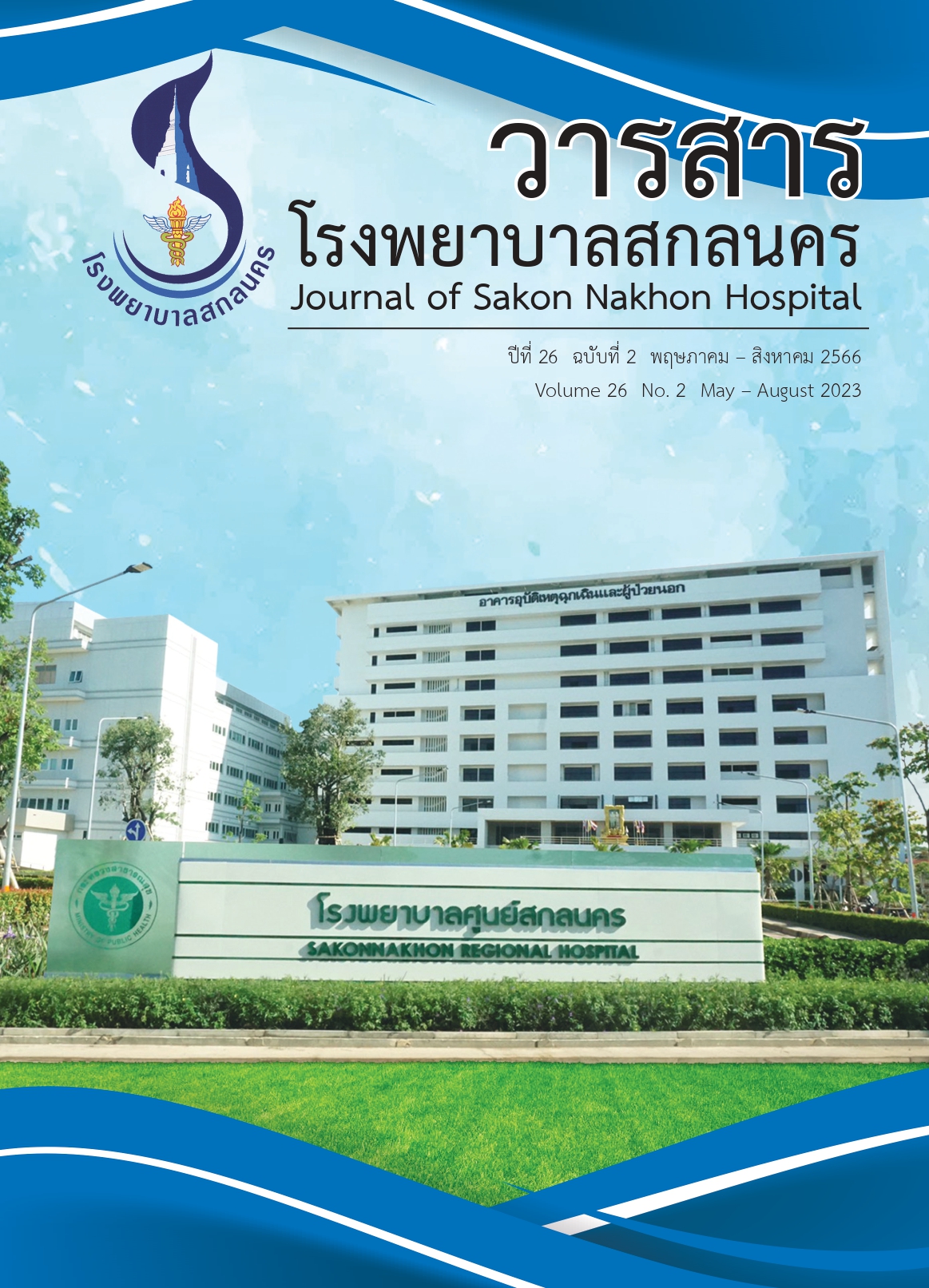Development of Care Model for the Elderly with Diabetes Mellitus, Banmuang District, Sakhon Nakhon Province
Abstract
This research and development aimed to analyze the care situation and develop the care model for elderly with diabetes mellitus and study the effectiveness of this care model in area of Banmuang District, Sakon Nakhon Province. The participants consisted of 15 staffs in the NCDs clinic, 342 elderly with diabetes mellitus and 25 caregivers and 25 elderly with diabetes mellitus. This study was implemented in 3 phases; phase 1) analysis of care situation in elderly with diabetes mellitus, phase 2) development of care model for elderly with diabetes mellitus and phase 3) studied the effectiveness of developed care model for the elderly with diabetes. The research instruments included the measurement form of self–care behavior, knowledge and satisfaction of care model. The data was analyzed by descriptive statistics and paired sample t–test. The statistics significant level at 0.05 was assigned.
The results of care situation analysis in elderly with diabetes mellitus showed that the care process was managed by a multidisciplinary team from Phra Ajan Mun Bhuridatto hospital to examine and treat elderly with diabetes at primary care unit every month. Patients with complications had been maintained at hospital. Regarding to the self–care behaviors of patients, there were still inappropriate practice in 3 aspects: food consumption, exercise and emotion and stress. The glycemic control was not achieved the goals and there were complications of chronic kidney disease, DM foot and diabetic retinopathy. The developed care model for the elderly with diabetes mellitus consisted of 6 components; 1) assessment of the elderly with diabetes mellitus 2) activity participation of caregivers 3) patients advice for self–care according to their problems and need 4) innovation using, blood sugar graphs accessed by phone and followed up by Line notify application 5) adjustment of treatment plan by doctors and 6) monitoring by home visits. After the care model was implemented, the self–care knowledge of elderly with diabetes mellitus was increased significantly at statistical level of 0.05. Their blood sugar level determined by HbA1c was decreased significantly at statistical level of 0.05. The satisfaction for the care model of the elderly with diabetes mellitus and caregivers were at a very high and high level, respectively.
Keywords: Care model development, Elderly with Diabetes Mellitus




